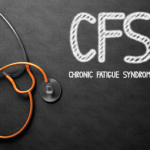 Chronic fatigue syndrome (CFS) presents as persistent, medically unexplained fatigue. Experts estimate that between two in 1,000 and two in 100 adults in the U.S. are affected by CFS, and in many cases, they receive a treatment program that includes exercise therapy. In general, physical activity has been shown to improve the health and quality of life of patients with chronic disease, and physicians suspect that it’s particularly beneficial for patients with CFS. Indeed, in 2004, a Cochrane Review concluded that exercise was a promising treatment for CFS, but that larger studies were needed to better understand its safety in this patient population.1 The past 10 years have seen the publication of several studies evaluating the effectiveness and safety of exercise therapy for CFS. Thus, a newly published updated Cochrane Review includes three times the number of participants as were included in the original 2004 review. It confirms the findings of 2004 and expands on them.2
Chronic fatigue syndrome (CFS) presents as persistent, medically unexplained fatigue. Experts estimate that between two in 1,000 and two in 100 adults in the U.S. are affected by CFS, and in many cases, they receive a treatment program that includes exercise therapy. In general, physical activity has been shown to improve the health and quality of life of patients with chronic disease, and physicians suspect that it’s particularly beneficial for patients with CFS. Indeed, in 2004, a Cochrane Review concluded that exercise was a promising treatment for CFS, but that larger studies were needed to better understand its safety in this patient population.1 The past 10 years have seen the publication of several studies evaluating the effectiveness and safety of exercise therapy for CFS. Thus, a newly published updated Cochrane Review includes three times the number of participants as were included in the original 2004 review. It confirms the findings of 2004 and expands on them.2
Lillebeth Larun, PhD, assistant professor at the Norwegian Institute of Public Health in Oslo, and colleagues concluded that patients with CFS may benefit from exercise therapy. Specifically, moderate quality data suggested that exercise therapy was more effective than passive treatments, such as waiting list, treatment as usual, relaxation and flexibility. The authors found no evidence that exercise therapy might worsen outcomes in patients with CFS.
The Cochrane Review included randomized controlled trials in adults older than 18 years of age who were capable of participating in exercise therapy. It evaluated the results from eight studies from developed countries that included 1,518 participants. The authors note that formal blinding of participants and clinicians was not possible due to the nature of the trials. The available research also made it difficult for Dr. Larun and colleagues to calculate the dropout rates of exercise therapy programs or the use of other healthcare services.
The review excluded traditional Chinese exercises, such as Tai Chi and Qigong, and instead focusing on walking, climbing stairs, bicycling, dancing and jogging. The authors found that the benefits of exercise were primarily seen for sleep, physical function and self-perceived general health. In particular, when exercise therapy was compared with passive control, patients had significantly less fatigue—a finding the authors call “encouraging.” The review was not able to document benefits for pain, quality of life, anxiety, or depression.
Some patients with CFS receive cognitive behavioral therapy, which is used to change unhelpful thoughts and, thereby, improve symptoms. The authors found that cognitive behavioral therapy and exercise therapy were equally effective in relieving fatigue in patients with CFS. In contrast, a single study that compared exercise therapy with pacing found that exercise therapy was significantly more effective than pacing for fatigue, physical functioning, depression, sleep and self-perceived changes in overall health. These conclusions are consistent with the findings of other relevant studies and reviews.


